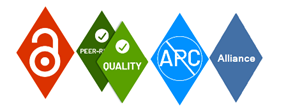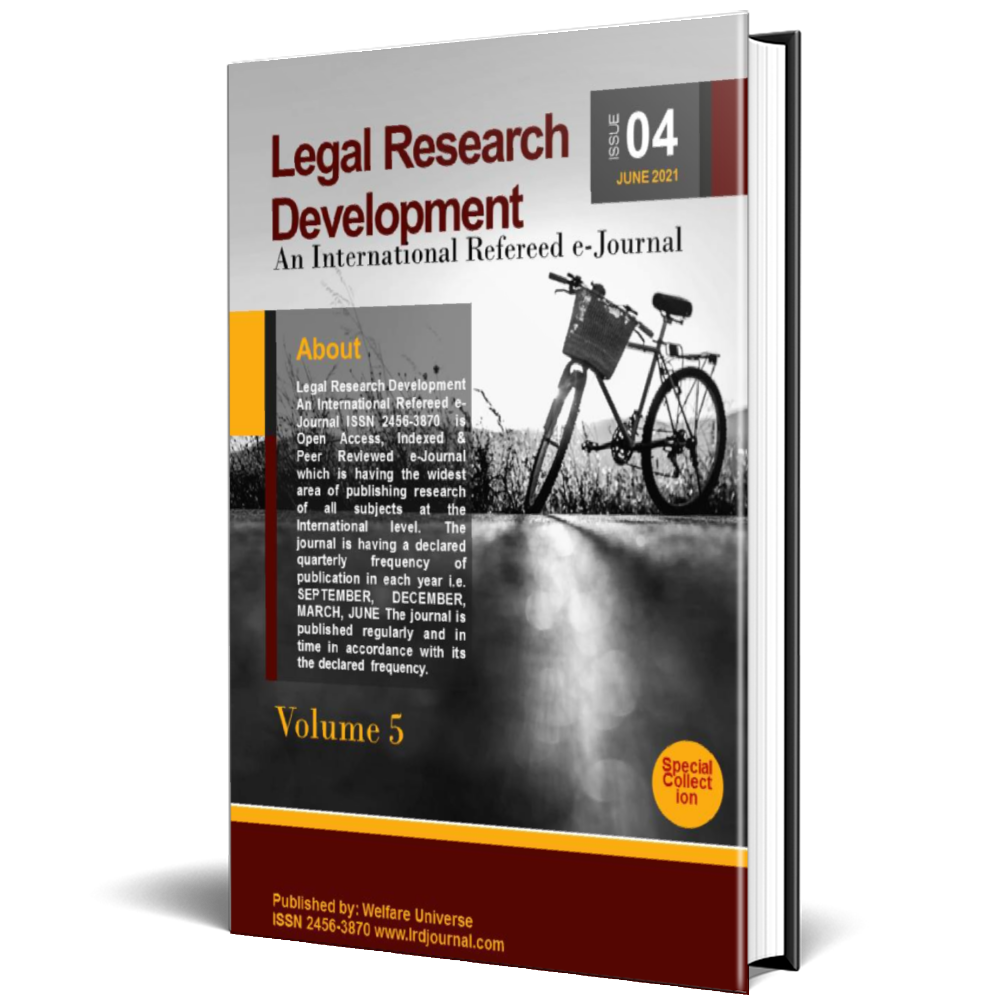The Indispensable Role of Census: A Cornerstone for National Development and Governance
DOI:
https://doi.org/10.53724/lrd/v9n1.3Keywords:
Census, National Development, Governance, Demographic Data, Population Statistics, Policy Formulation, Resource Allocation, Public Services, Infrastructure Planning, Economic Growth, Education, Healthcare, Employment, Urban Planning, Civic Participation, Socioeconomic Indicators, Government Accountability, Data Accuracy, Population Trends, Census MethodologyAbstract
Census data are fundamental to governance and policy-making, providing critical demographic, social, and economic insights that enable governments to address the diverse needs of their populations effectively. By capturing details on population size, density, distribution, and key characteristics, censuses offer an empirical basis for designing targeted and inclusive policies and interventions.
The significance of census data spans various domains, including governance, socio-economic planning, and electoral processes. It facilitates evidence-based decision-making, equitable resource allocation, and the development of essential infrastructure. In socio-economic planning, census data help identify demographic trends, inform the planning of education and healthcare systems, and address inequalities, fostering sustainable and inclusive growth. Furthermore, in electoral processes, census data ensure fairness by guiding representation and constituency delimitation.
This study highlights the indispensable role of census data in shaping the socio-economic landscape of nations. By providing accurate, comprehensive, and timely insights, censuses empower policymakers to promote equity, efficiency, and sustainability, ensuring responsive and adaptive strategies for national development and good governance.
References
United Nations Statistics Division. Principles and Recommendations for Population and Housing Censuses, Revision 3. New York: United Nations, 2017.
National Statistical Office (India). Census of India: Framework and Methodology. Government of India, 2011.
World Bank. The Importance of Population Censuses for Development Policy. Washington, DC: World Bank, 2020. Available at www.worldbank.org
United Nations Population Fund (UNFPA). Census Data and Development: Empowering Nations Through Evidence. New York: UNFPA, 2022.
Ministry of Statistics and Programme Implementation (MoSPI). Statistical Year Book India 2023. Government of India, 2023
Registrar General & Census Commissioner, India. Census of India 2011: Provisional Population Totals. Government of India, 2011.
National Health Mission. India's Health Policies and Census Data: A Framework for Targeted Interventions. Ministry of Health and Family Welfare, Government of India, 2020.
Registrar General & Census Commissioner, India. Census of India 2011: Housing, Household Amenities, and Assets. Government of India, 2011.
Ministry of Housing and Urban Affairs. State of Urbanization in India: Insights from Census Data. Government of India, 2020.
Finance Commission of India. Report of the Fifteenth Finance Commission (2021–26). Government of India, 2021.
Registrar General & Census Commissioner, India. Census of India 2011: Population Totals and Socio-Economic Data. Government of India, 2011.
Ministry of Home Affairs. Disaster Management Guidelines: Role of Census Data in Resource Allocation. Government of India, 2019.
Registrar General & Census Commissioner, India. Census of India 2011: Socio-Economic and Caste Census Data. Government of India, 2011.
Ministry of Statistics and Programme Implementation (MoSPI). Periodic Labour Force Survey and Census Data Correlation. Government of India, 2020.
NITI Aayog. Monitoring Development Goals in India: Insights from Census Data. Government of India, 2021.
Election Commission of India. Population Data and Electoral Roll Management: A Framework for Fair Representation. Government of India, 2019.
Election Commission of India. Population Data and Electoral Roll Management: A Framework for Fair Representation. Government of India, 2019.
Registrar General & Census Commissioner, India. Census of India 2011: Implications for Electoral Delimitation. Government of India, 2011.
Registrar General & Census Commissioner, India. Census of India 2011: Social and Economic Tables. Government of India, 2011.
Ministry of Social Justice and Empowerment. Use of Census Data in Affirmative Action Policies. Government of India, 2020.
Ministry of Social Justice and Empowerment. Use of Census Data in Affirmative Action Policies. Government of India, 2020.
NITI Aayog. Inclusive Growth and Census Data: A Pathway to Development. Government of India, 2021.
Ministry of Education. Educational Inequalities and Census Data Insights. Government of India, 2018.
Ministry of Home Affairs. Strengthening Census Operations for Good Governance. Government of India, 2020.
Ministry of Women and Child Development. National Policy for the Empowerment of Women and Census Data. Government of India, 2019.
Registrar General & Census Commissioner, India. Census of India 2011: Economic Indicators and Workforce Participation. Government of India, 2011.
NITI Aayog. Socio-Economic Planning and the Role of Census Data in Inclusive Development. Government of India, 2021.
Ministry of Rural Development. Inclusive Growth: Leveraging Census Data for Sustainable Resource Management. Government of India, 2020.
Ministry of Social Justice and Empowerment. Mapping Vulnerabilities and Crafting Welfare Programs Using Census Data. Government of India, 2021.
Census of India, 2011.
Ibid.
Ibid.
Ibid.
United Nations Statistics Division, Population and Electoral Systems: The Role of Census Data, 2018.
International IDEA, Electoral System Design and the Use of Census Data, 2020.
International IDEA, Electoral Boundary Delimitation and the Use of Census Data, 2020.
Election Commission of India, Delimitation of Constituencies: A Data-Driven Approach, 2019.
United Nations, The Role of Census Data in Legislative Representation, 2018.
Election Commission of India, Delimitation of Lok Sabha Seats Based on Census Data, 2020.
Census Report on Urban and Migrant Populations in India, 2011.
Report on "Technological Advances in Population Data Collection," UNDP, 2019.
Thesis on "Logistical Challenges in Workforce Management for National Censuses," 2021.
Report on "Public Engagement Strategies in Population Censuses," UNICEF, 2020.
UNHCR Report on "Census Operations in Conflict Zones," 2019.
Thesis on "Inter-Departmental Coordination in Census Operations," 2020.
Report on "Challenges in Post-Enumeration Data Processing," World Bank, 2021.
UNDP Report on "Digital Transformation in Population Censuses," 2019.
U.S. Census Bureau. (2021). Innovations in the 2020 Census.
United Nations Statistics Division. (2020). Guidelines on Population and Housing Censuses.
Australian Bureau of Statistics. (2022). Census 2021: A Digital Transformation.
U.S. Census Bureau, Innovations in the 2020 Census, 2021.
Ministry of Statistics and Programme Implementation, India, Census and Development Initiatives, 2021.
Estonian Statistics Office, Digital Transformation in Census Operations, 2020
Statistics Canada, Census Engagement Strategies for Indigenous Communities, 2021
Australian Bureau of Statistics, Census 2021 and Accessibility, 2022.
U.S. Census Bureau, Shape Your Future Campaign Overview, 2020.
United Nations Statistics Division, Principles and Recommendations for Population and Housing Censuses, 2020.
United Nations Statistics Division, Sustainable Development Goals Indicators, 2020.
World Bank, Census Data and Global Resource Allocation, 2019.
WHO, Population-Based Strategies for Disease Control, 2021.
U.S. Census Bureau, Census Data in Pandemic Planning, 2020.
UNHCR, Population Statistics for Refugee Management, 2021.
IPCC, Climate Change 2022: Impacts, Adaptation and Vulnerability, 2022.
UNDP, Reducing Inequality Through Data-Driven Policies, 2020.
UN Women, Gender Data for Equality Initiatives, 2020.
United Nations Population Fund, Census Operations in Conflict Zones, 2019.
OECD, Bridging the Digital Divide in Developing Countries, 2021.
Esri, The Role of Geospatial Technology in Modern Censuses, 2021.
United Nations, Principles and Recommendations for Population and Housing Censuses: Revision 3, 2017.
UNDP Report on "Digital Transformation in Population Censuses," 2019.
Thesis on "Technological Innovations in National Census Operations," 2021.
Report on "GIS Applications in Census Processes," World Bank, 2020.
Paper on "AI and Big Data Integration in National Surveys," Journal of Population Studies, 2020.
Report on "Self-Enumeration and Citizen Engagement in Censuses," UNICEF, 2021.
World Bank Report on "Administrative Data Linkages for Population Statistics," 2020.
UN Report on "Data Privacy and Security in Digital Censuses," 2021.
United Nations Handbook on "Global Census Best Practices," 2020.
Summary from "Future of Censuses: Innovations and Global Trends," Population Research Journal, 2022.
Downloads
Published
How to Cite
Issue
Section
License
Copyright (c) 2024 Legal Research Development

This work is licensed under a Creative Commons Attribution-NonCommercial 4.0 International License.










